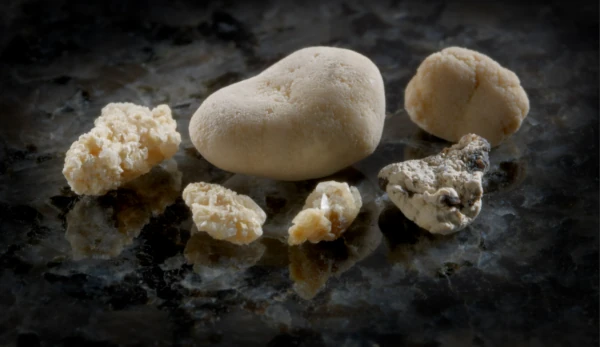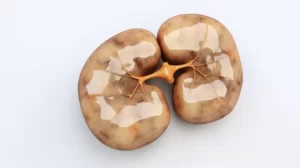Bladder stones are formed from the minerals deposited in the bladder, often resulting from dehydration. When the body is dehydrated, minerals like calcium or magnesium can crystalize in the bladder, which collects urine from the kidneys before sending it to the urethra to be expelled from the body.
In some cases, people may not experience any pain or noticeable symptoms at all, living without knowing they have the condition. But for others, these stones can block the flow of urine or irritate the bladder wall, causing pain and discomfort that cannot be ignored.
Recognizing the Signs and Symptoms
The first sign of bladder stones may be pain in the lower abdomen or the penis. This could be followed by painful urination or an urgent need to urinate frequently. Furthermore, when bladder stones are present, urination may be difficult to start or the flow can be inconsistent. Other symptoms that might accompany bladder stones include darker urine, possibly due to a bloody discharge, and flu-like symptoms such as nausea, vomiting, and chills. If you experience any of these symptoms, it’s essential to consult your healthcare professional for an accurate diagnosis and treatment if necessary.
Diagnosing the Condition
A thorough physical exam, including a check for an enlarged prostate, will be conducted when diagnosing bladder stones. Other diagnostic procedures might include urinalysis to look for bacterial infections, X-ray of the pelvis, or other imaging techniques to get a clearer view of the bladder. When urine remains in the bladder, it becomes concentrated and forms stones, which can be caused by urinary tract infections, nerve damage, or blockage (often related to prostate enlargement).
Effective Treatment for Bladder Stones
While bladder stones don’t always cause signs or symptoms and small stones can pass on their own without treatment, surgery may be necessary for larger stones or when blockages prevent their passage. The first step in treating bladder stones begins with increasing water consumption to address dehydration. Drinking at least eight glasses of water per day helps the stones pass, but medications are not regularly used to treat this condition. Stones that won’t pass may be removed by cystoscopy, a procedure that runs through the urethra into the bladder to reach the stones, while others may need traditional surgery for extraction.
Potential Complications
Bladder stones should not be ignored, as left untreated they can cause several complications, such as:
- Recurring bacterial infections
- Painful urination
- Frequent need to urinate
- Overactive bladder
- Inability to urinate efficiently
- Damage to the kidneys or bladder
Moreover, treating related conditions such as an enlarged prostate (BPH) are crucial to prevent the reoccurrence of bladder stones. Surgery for BPH, such as resection of the prostate (TURP), can coincide with stone removal if indicated. If the underlying causes of bladder stones are not addressed, they are likely to reappear.
Natural Remedies for Prevention and Treatment
While it’s essential to consult a healthcare professional before starting any treatments, some natural remedies for urinary incontinence may help prevent or treat bladder stones. The following items have been known to aid in the prevention of bladder stones: cranberry (or cranberry supplements), gosha-jinki-gan, horsetail, omega-3 fatty acids, pollen extract, probiotics, saw palmetto, stinging nettle, uva ursi, and other prostate supplements.
The key to good health when dealing with bladder stones is early treatment and, in many cases, prevention. Stay adequately hydrated, monitor your symptoms, and consult a healthcare professional when necessary to ensure your bladder’s health and well-being.



